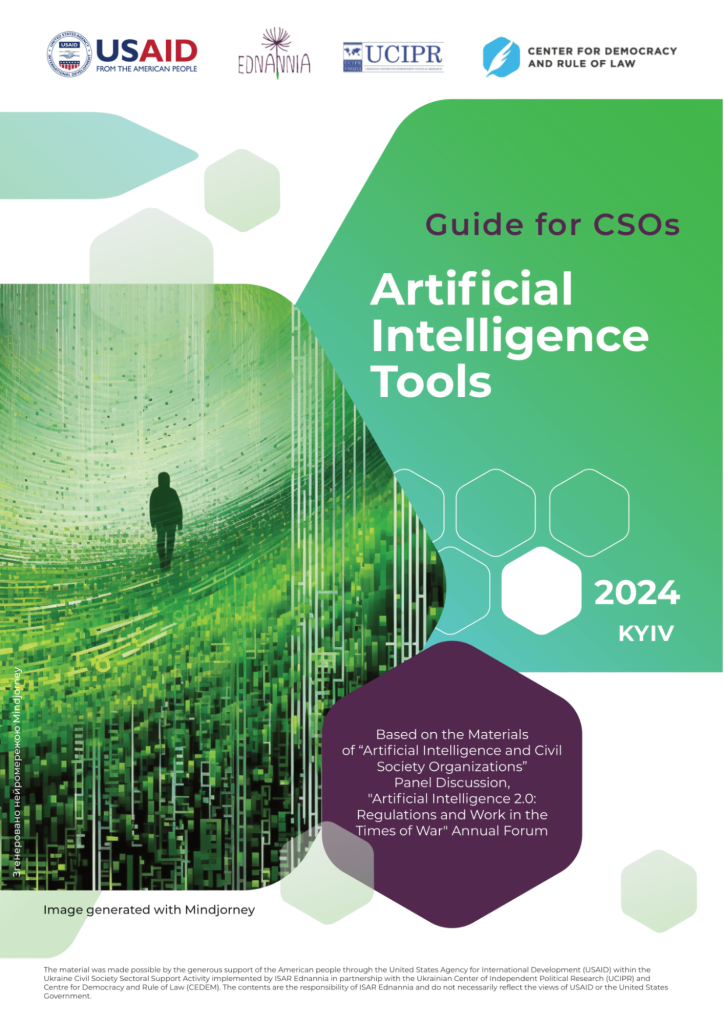Artificial intelligence (AI) tools have become our irreversible reality. Of course, experts remind us that the real AI is still thirty years away. At the current stage of development, it cannot exist without human involvement, which will ‘approve’ its results.
Civil society organizations (CSOs) should use AI, as it will significantly simplify and speed up their work processes. At the same time, they should learn how to use AI tools responsibly and rationally, considering all the risks. Chat GPT, deep fakes, shallow fakes, and cameras with facial recognition technology are just the tip of the iceberg of AI tools that can affect the work of civil society. CSOs need to recognize and integrate the opportunities of AI tools into their work and identify and develop prevention mechanisms for the potential threats by AI. More importantly, it is essential to think about how legislation regulating AI should look like and make it CSO-friendly.
To strengthen the capacity of CSOs to use AI tools and raise awareness of the challenges and threats associated with using AI tools in various fields, CEDEM has developed a guide for CSOs on AI tools.
What questions does this Guide raise:
- What are generative AI systems, and how do they work?
- What are the practical ways to use generative AI for different tasks?
- What are the opportunities and threats of using deep fakes and shallow fakes?
- How do facial recognition cameras work, what are the risks of using this technology, and how can it be effectively regulated by the legislation?
Click on the image to download the guide:
This Guide was made possible by the generous support of the American people through the United States Agency for International Development (USAID) within the Ukraine Civil Society Sectoral Support Activity implemented by ISAR Ednannia in partnership with the Ukrainian Center of Independent Political Research (UCIPR) and Centre for Democracy and Rule of Law (CEDEM). The contents are the responsibility of ISAR Ednannia and do not necessarily reflect the views of USAID or the United States Government.


